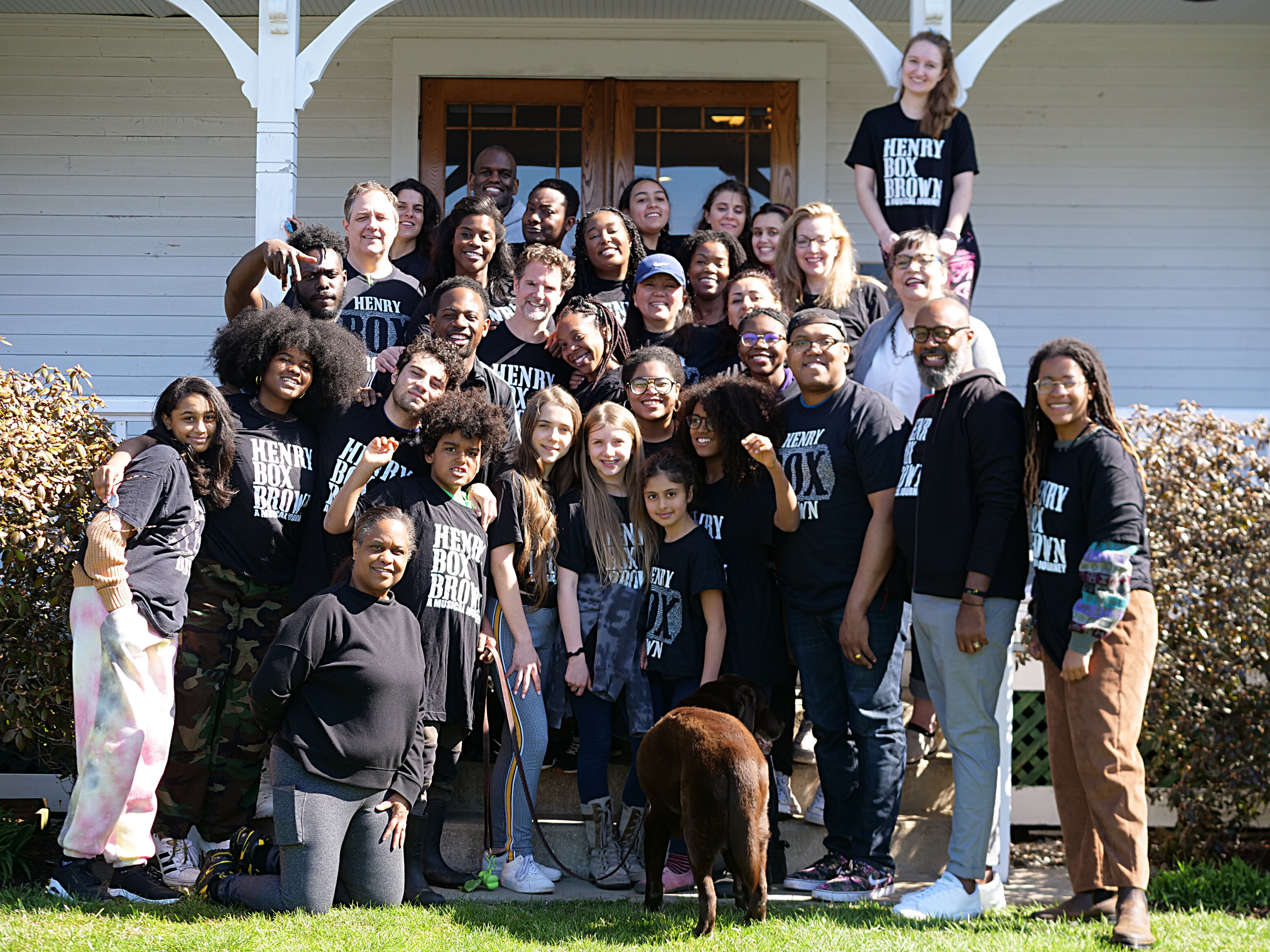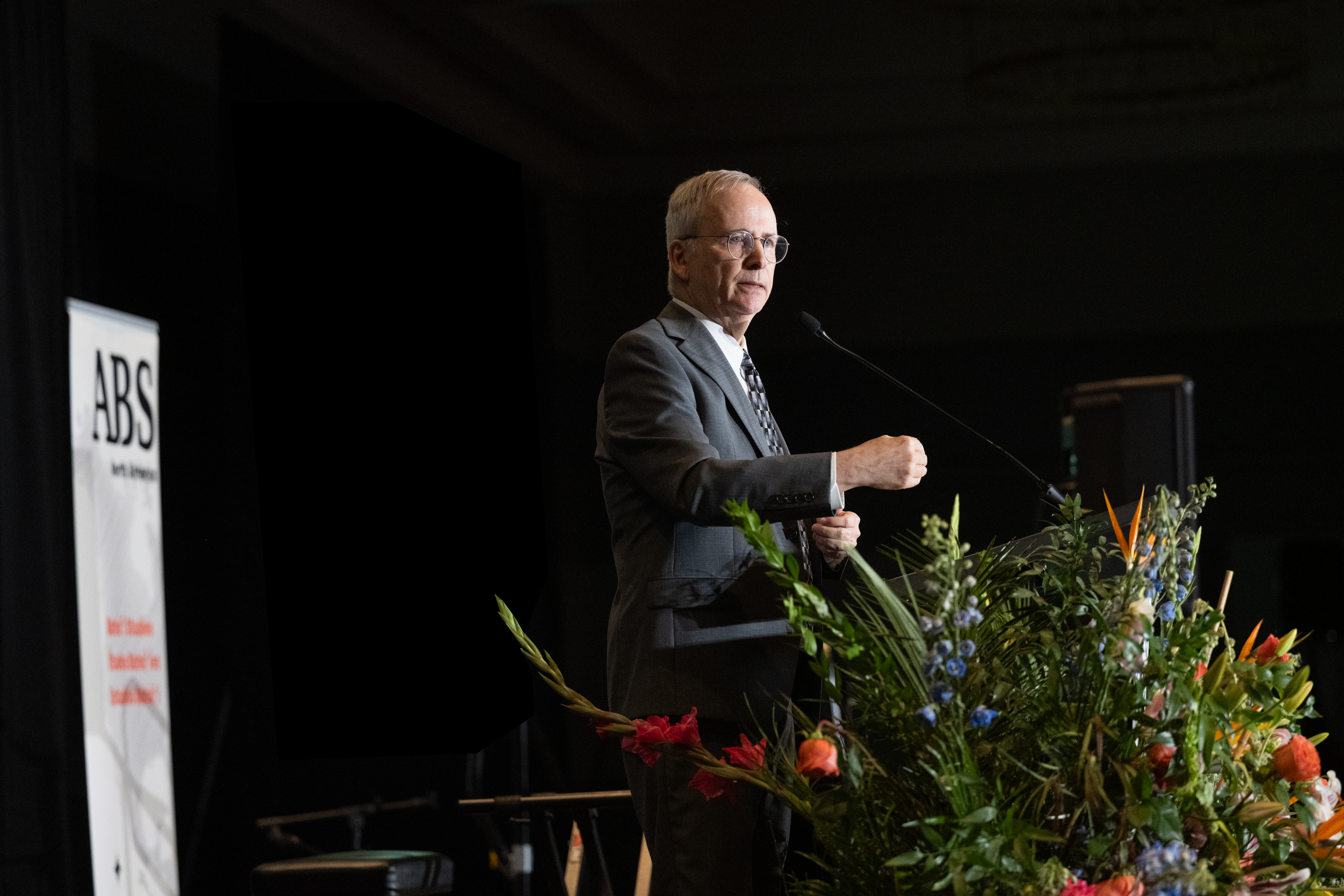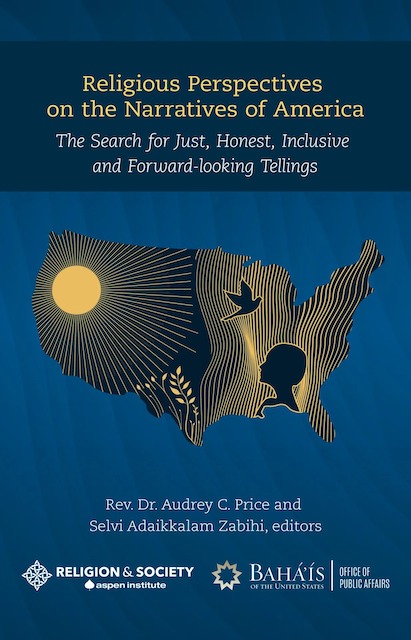
‘Henry Box Brown’ stirs vital conversations in Flint
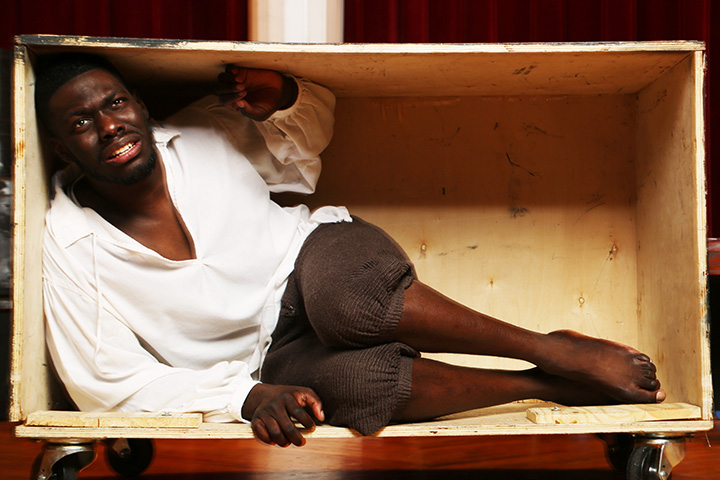
It was a stage production and more. It gave voice to a community’s history and aspirations. It helped build relationships among people and groups that want to strengthen capacities. And it involved people of all ages in conversations surrounding it.
With the initiative of Louhelen Baha’i School staff and collaboration with organizations and schools in Flint, Michigan, the play Henry Box Brown, produced by the Children’s Theater Company (CTC) of New York, brought a total of 800 people together during seven performances last November.
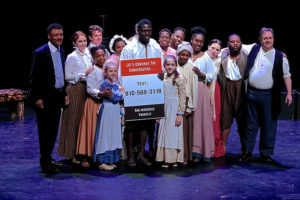
And as local residents increasingly get involved, more is on the horizon.
These developments emerged more than a year after staff of Louhelen in Davison, Michigan, took steps to learn about how involvement in society’s discourses can influence people’s spiritual and material well-being, particularly in Flint, an economically struggling city with a strong industrial heritage whose population is mostly African American.
With that aim in mind, in 2017 a delegation from the national Baha’i Office of Education and Schools (OES) attended a poignant, locally created stage play about Flint’s well-documented water crisis. They included Jeffrey Albert, OES director, and Tahirih Merkel and Fita Halaholo, Louhelen’s outreach and program coordinators.
The play’s surprise ending revealed that the water crisis was not so new — but had its beginnings in 1887. After the performance the audience of a few hundred had a meal in a school cafeteria and discussed the impact. Through all the despair, the community found comfort together, sharing its deep resilience of spirit. Strong relationships of the heart began to be formed from this catalytic space.
The Louhelen team consulted about how this kind of community theater could be a way to cement genuine bonds of friendship. Moreover: How could such an effort introduce people to Baha’i approaches to training for service; the power of devotional life; and discourse leading to meaningful action?

Within a few months, the office learned about Henry Box Brown, a musical play created by CTC, a nonprofit enterprise in New York founded by Baha’is. Having been performed in New York and London, and nominated for a Best Musical award in Britain’s 2018 Fringe International Theatre Festival, it tells of a 33-year-old slave in Virginia who, in 1849, escaped to freedom by mailing himself in a wooden crate to abolitionists in Philadelphia. At the end of each performance, audiences are challenged to pledge to act for social good and invited to stay in contact for continued conversation.
Back in Flint, a Chamber of Commerce representative visited Louhelen about this time looking for a meeting space. That conversation opened the door to inquiring whether the community and students of Flint would welcome this musical rooted in African-American history.
The idea inspired imaginations and led to new relationships with not only the Chamber of Commerce but also the YouthQuest after-school program and several local public and charter schools. And the Louhelen staff — joined about this time by Cam Herth as administrator and Becky Chappell as operations manager — kept reaching out to more community organizations.
A Baha’i-initiated junior youth group in Flint made brochures designed by Ethan Martin, Louhelen’s learning coordinator. Group members then helped distribute the brochures door to door in selected neighborhoods, taking part in the conversations with those neighbors about the junior youth spiritual empowerment program.
On a visit to a women’s shelter in Flint, Halaholo notes, she met a woman who was excited about the play. “She had just lost her job and been kicked out of her house and was looking for free things for her family to go to,” Halaholo shares. The woman added that local schools don’t offer arts programs anymore. “She said that if she can find theater or any type of arts that encouraged her kids to heal, this would be it.”
Then when mid-November came around, the 800 people attending performances of Henry Box Brown at a local theater and a school included 550 public school students, Grade 4 and older. And the Louhelen team took a lesson from the earlier play: Conversations about Henry Box Brown were facilitated in classrooms before and after performances. The audience for the final performance was invited to a dinner discussion with the cast, inspiring elevated conversations, Albert says.
Teachers and students asked how they could get more involved. An emerging idea generated enthusiasm: putting on a second play, in an effort expected to involve more than 300 students. News about the second play will be shared in the coming months.


